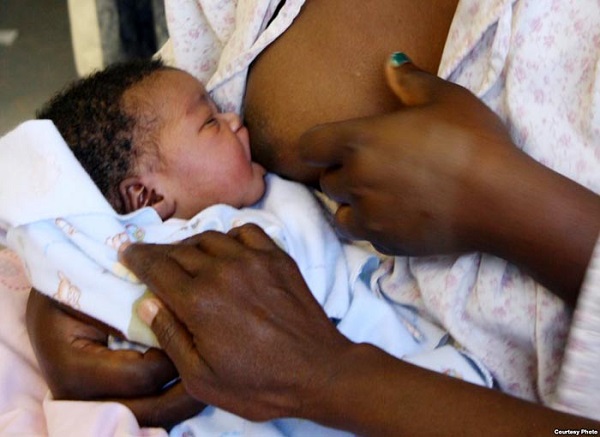
The United States Centers for Disease Control and Prevention (US CDC) has underscored the need for a collective and sustained commitment from all stakeholders to achieve the ambitious objective of zero-infected babies with HIV, hepatitis B and syphilis.
In a recent media roundtable titled “Reaching zero infected babies: HIV, Hepatitis B, Syphilis triple elimination,” the US CDC country director, Dr. Mary Boyd, highlighted the crucial role of governments, civil society, and the private sector in this endeavour. The comprehensive strategy to eliminate these infections requires a collaborative approach involving sectors such as health, education, social welfare and civil society. By combining prevention, testing, treatment and care, countries can strive towards the goal of zero transmission, ensuring a healthier future for infants.
Drawing attention to Nigeria, Boyd highlighted that the primary drivers of mortality in the country are primarily infections, many of which are preventable and treatable. Neonatal disorders also contribute significantly to the mortality rate. Vaccination plays a crucial role in preventing neonatal disorders, which are often linked to vaccine-preventable diseases in mothers. Boyd stressed the importance of supporting both mothers and babies to ensure their well-being and to prevent the transmission of infections. Noting the progress made globally, she celebrated the milestone of 5.5 million HIV-free babies born to HIV-infected mothers through the efforts of organisations like PEPFAR.
Despite advancements, the decline in neonatal mortality globally remains slower than in other age groups, highlighting the need to intensify efforts in these areas. Boyd expressed confidence in the possibility of achieving zero-infected babies not only for HIV but also for Hepatitis B and Syphilis. USCDC, in collaboration with the Nigerian government and communities, is committed to supporting Nigeria in establishing robust organisation programmes, HIV prevention treatment programs, and investing in adolescent and young people’s health. She emphasised that the age group comprising adolescents and young people is disproportionately affected by these infections.
Efforts are underway to establish an integrated health systems approach in Nigeria, with a focus on adopting a person-centred approach to address these issues comprehensively. Boyd reiterated that the fight against infections, particularly in Nigeria, requires interventions such as treatment and vaccination to save more lives. She emphasised the urgent need to prioritise the elimination of HIV, hepatitis B and syphilis in infants.
The national coordinator of the National AIDS and STDs Control Programme (NASCP), Dr. Bashorun Adebobola echoed the commitment to achieve zero infected babies in Nigeria. Adebobola emphasised the importance of ensuring that all women attend antenatal clinics to identify those at risk of infections like hepatitis and syphilis. While progress has been made in the treatment package for HIV, efforts to combat hepatitis are lagging behind. Adebobola urged intensified efforts to prevent these three infections, especially since hepatitis B does not have a cure. Early immunisation using the hepatitis B vaccine is crucial to protecting children from the infection.
Adebobola emphasised the need for an efficient testing system capable of detecting HIV, hepatitis, and syphilis to guide the country’s approach effectively. However, he lamented that only 67 per cent of women in Nigeria attend antenatal clinics, according to the 2018 Nigeria Demographic and Health Survey (NDHS). To achieve the desired 90 per cent coverage and ultimately zero infection rates, more concerted efforts are required.
The USCDC deputy director for programmes, Dr. Jerry Gwamna highlighted the significant reduction in the risk of transmission through the prevention of mother-to-child transmission (PMTCT) interventions. Without any intervention, the risk of transmission ranges from 15 to 45 percent. Nigeria is a major contributor to mother-to-child transmission globally, accounting for approximately one-third of all cases. The PMTCT program focuses on preventing new HIV infections among women of reproductive age, unintended pregnancies among women living with HIV, and transmission of HIV from pregnant or breastfeeding women to their babies. It also aims to provide appropriate treatment, care and support to mothers living with HIV, their children and their families.
Experts stress that a comprehensive strategy encompassing prevention, testing, treatment, and care is crucial to achieving zero transmission of HIV, hepatitis B and syphilis in infants. Collaboration among various sectors, including health, education, social welfare, and civil society, is essential to address the social and economic factors contributing to the spread of these infections.
By uniting efforts, implementing comprehensive strategies, and fostering collaboration between sectors, countries can work towards the ambitious goal of zero-infected babies, safeguarding the health and well-being of future generations.

